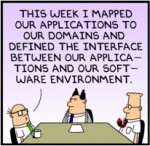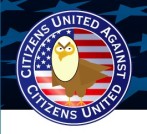Corporate Personhood versus Democracy
[Editor’s note: The Supreme Court decision in Citizens United was the worst decision by the court since those of Dred Scott v. Sandford and Santa Clara County v. Southern Pacific Railroad Company, the latter of which established the ridiculous idea of corporate person-hood in US law. The origins of corporate person-hood are explored in the excellent essay linked below from William Myers. Bob Higgins]
The Santa Clara Blues: Corporate Personhood versus Democracy
By William Meyers
What Corporate Personhood Is
Corporate Personhood is a legal fiction. The choice of the word “person” arises from the way the 14th Amendment to the U.S. Constitution was worded and from earlier legal usage of the word person. A corporation is an artificial entity, created by the granting of a charter by a government that grants such charters. Corporation in this essay will be confined to businesses run for profit that have been granted corporate charters by the States of the United States. The Federal Government of the United States usually does not grant corporate charters to businesses (exceptions include the Post Office and Amtrak).
Corporations are artificial entities owned by stockholders, who may be humans or other corporations. They are required by law to have officers and a board of directors (in small corporations these may all be the same people). In effect the corporation is a collective of individuals with a special legal status and privileges not given to ordinary unincorporated businesses or groups of individuals.
Obviously a corporation is itself no more a person (though it is owned and staffed by persons) than a locomotive or a mob. So why, in the USA, is a corporation considered to be a person under law?
Corporate personhood is the idea (legal fiction, currently with force of law) that corporations have inalienable rights (sometimes called constitutional rights) just like real, natural, human persons.
That this idea has the force of law both resulted from the power and wealth of the class of people who owned corporations, and resulted in their even greater power and wealth. Corporate constitutional rights effectively invert the relationship between the government and the corporations. Recognized as persons, corporations lose much of their status as subjects of the government. Although artificial creations of their owners and the governments, as legal persons they have a degree of immunity to government supervision. Endowed with the court-recognized right to influence both elections and the law-making process, corporations now dominate not just the U. S. economy, but the government itself.
Read more The Santa Clara Blues: Corporate Personhood versus Democracy by William Meyers.


















Corporations are people….with no soul to save and no body to incarcerate.